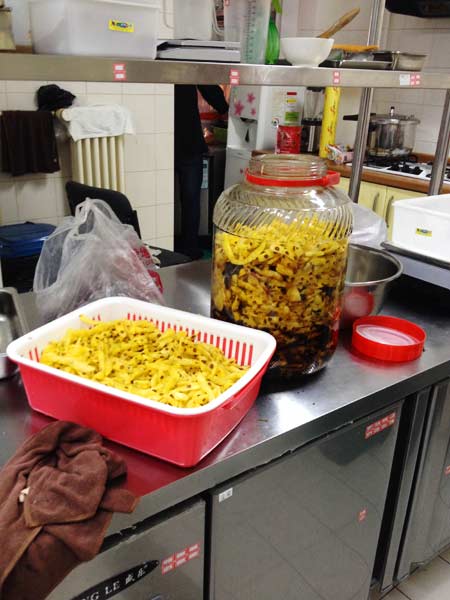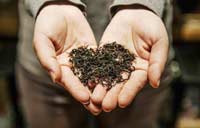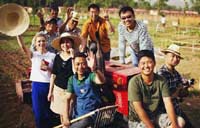Coming full circle
 |
|
Zhang uses the peels of pineapples to make a garbage enzyme. [Photo provided to China Daily] |
|
For more Good Food Diaries |
"I dilute it with different amounts of water and use it to fertilize the plants, clean the floor and tables, remove stubborn stains in the kitchen and keep the insects away," she says.
"It's free from harmful chemicals and very economical for the restaurant."
But before all these plans were put into practice, it took Zhang months to find a farmer willing to take her kitchen waste.
A lot of local farms buy chemical fertilizers or so-called organic fertilizers on the market to reduce money and save time. Only a few small farmers make their own compost with natural ingredients, such as leftover vegetables and sesame dregs.
Zhang Meng, who owns a small farm in the Beijing suburbs, delivers fresh produce to the restaurant and collects its kitchen waste.
It's only recently that he has started to encourage his customers to save their kitchen waste for him.
"After I explained why I want the garbage, most of my customers agree with what I do. Some of them even asked their neighbors to contribute," Zhang Meng says.
Now 20 percent of his customers are recycling kitchen waste. The amount, however, is still not enough for his farm because making compost takes more than two months.
"I deliver food once a week when I collect their kitchen waste. I wish I could collect more and more often but I can't. The cost of gasoline would increase."
The joys and frustrations of recycling are shared by another pair of restaurant and farm partners.



















